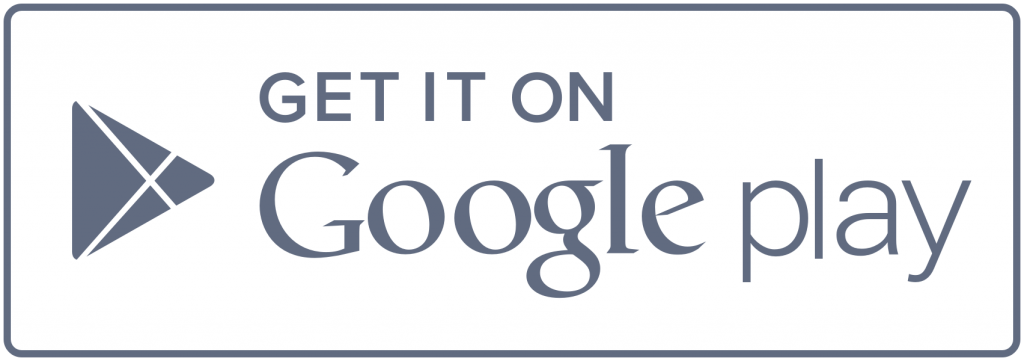Q. Why is being a Nurse Practitioner a good career?
There are so many reasons! Let’s start with the basics. Nurse Practitioners (NP) are advanced practice registered nurses (APRN) (along with Nurse Midwives, Certified Registered Nurse Anesthetists, and Clinical Nurse Specialists) who are licensed and able to manage their patient’s health with greater autonomy. NPs can focus on specific populations or specialty areas. More on that later. Nurse Practitioners like their job. Job satisfaction is important, particularly when your chosen career requires an advanced degree. One study found that 88 percent of NPs were happy with their career and recommend students pursue a career as an NP. Loving what you do is one thing, but what about the job outlook? That’s good too! The Bureau of Labor Statistics (BLS) shows the NP field growing at 26 percent (well above average) from 2018 to 2028, due to factors like emphasizing preventative care to an aging population. The BLS also reported the median salary for NPs is $113,930/year, or $54.78/hour. Pay depends on numerous factors including experience, specialty, and where you work – in both geographic and healthcare setting. But, suffice to say, NPs are compensated well for a job they enjoy.Q. What is a normal day like for a Nurse Practitioner?
One thing is certain, there is no “normal day” for NPs. As an NP, you can work in a wide variety of healthcare settings, including hospitals, physicians’ offices and clinics. In more than 20 states, NPs can practice without physician oversight, opening the way for NPs to start their own private practice. The impact of NPs is growing across the country in rural settings experiencing a lack of accessible healthcare, and in urban and suburban settings with expanded opportunities. All of these factors make for a vastly different work day! Once you look at different practice areas, the “normal day” is in the rearview mirror. Most NPs, though, will do some form of the following during their day:- Review your patient schedule and get prepared to see your patients.
- See patients! That’s obvious, we know, but what goes into seeing patients involves working with your team, diagnosing, treating, making referrals and more.
- Complete charts, paperwork and write prescriptions.
Q. What are some of the specialty areas for Nurse Practitioners?
Specialty areas for Nurse Practitioners include:- Acute Care – with this path, you can work in an emergency department, urgent care or operating room. Some even become hospitalists!
- Adult-Gerontology – this specialty focuses on the care of elderly patients and can be in long-term care facilities, hospitals and clinics. Just in time, too, because older Americans are projected to outnumber children for the first time! The focus will include gaining expertise in Alzheimer’s disease and dementia, managing chronic conditions, conducting physicals, executing preventative care and educating families and caregivers.
- Family – Family Nurse Practitioners work in adult, pediatric, and gynecological primary care in clinics, hospitals or long-term care facilities.
- Midwifery – nurse midwives are a fast-growing field. Nurse midwives can provide prenatal, delivery and postpartum care. They can also perform gynecological services and can work in a variety of settings like hospitals, birth centers and health clinics.
- Neonatology – in this field, NPs work with preterm and full-term infants and their families, who are facing chronic illnesses, genetic disorders and life-threatening conditions.
- Pediatric – Pediatrics NPs can work with infants through young adults performing well-child visits, sports physicals, preventative care and more in hospitals, clinics and specialty departments.
- Psychiatric-Mental Health – NPs in this field work with not only the mental health conditions patients face like depression and anxiety, but also the physical ailments that commonly accompany mental health issues, like diabetes, cardiovascular disease and obesity.
Q. Do NP programs require an entrance exam?
Yes, typically a Nurse Practitioner program will require the GRE. The test is broken down into three sections: analytical writing, quantitative reasoning and verbal reasoning. As expected, the higher your score, the better. However, NP programs will look at your comprehensive application including experience, GPA and more. To learn more about what to expect with the GRE as you prepare for NP school, visit Nursing.org.Q. What are my NP school options?
Becoming a Nurse Practitioner, like any career that requires an advanced-degree, takes commitment, focus and a lot of work. The path NPs take, however, can look different for everyone. Some start their career as a registered nurse (RN), nursing assistant, vocational nurse or even a career outside of healthcare. Many people will earn a Bachelor of Science in Nursing (BSN), though, which requires practical courses that will help in NP school. You have two options when it comes to what degree you pursue to become a Nurse Practitioner:- Master of Science in Nursing – this path takes about three years to complete
- Doctor of Nursing Practice (DNP) – the Doctorate programs usually include courses in population health and healthcare leadership
Q. What are the prerequisites for Nurse Practitioner school?
If you are planning to go to NP school, you will first need to become an RN. This is almost a guaranteed requirement. However, there may be schools that will accept another combination of degrees and experience. If you aren’t an RN yet, don’t worry, Picmonic for RN can help you get there! You will also need to have nursing experience. The average experience of an NP student is around 10 years, but most programs don’t require more than a few years. As far as required coursework, being a RN means you will have completed the courses most NP programs require. Generally, schools will expect you to have completed the following courses:- Anatomy and Physiology
- Chemistry
- Psychology
- Microbiology
- Nutrition
Q. How do I do well in my NP program?
We aren’t going to sugarcoat it, Nurse Practitioner school is going to be a lot of work. Knowing that going in, though, you can plan for what will be expected of you. The best way to do well, stay as balanced as possible and enjoy the process (you are, after all, doing this because you love it!) is to go into it with a plan. Outside of your classes, you should plan for several hours of studying every day and on weekends. Don’t leave all of your studying to one or two days, try to balance it though your week by planning well using whatever method works for you: have an accountability partner, use a giant white board or calendar, color-code everything with post-it notes, or plan with digital scheduling and reminders. The important thing is to work the plan. And that plan should include Picmonic. Study tools like Picmonic’s visual learning system will reinforce what you are learning in class and what you are studying outside of class. One way to use Picmonic is to think of it like a workout warm-up for your brain before study sessions or lectures. Picmonic will also reinforce and solidify concepts from your classes. Many students rely on Picmonic to independently augment lectures and study materials around specific topics. It’s customizable so you can use it however works best for you. Picmonic is free to try, so why not give it a shot? We are here with you from the first day of your first class, through your board exam armed with videos and infographics, study guides, unlimited quizzes and customized study recommendations on your personal dashboard. The other tip we can’t stress enough, is to cut yourself some slack. This program is not meant to be easy. If you struggle with a topic or don’t get the grade you expected on an exam, relax. Ask for help, work with study partners and log onto your Picmonic account for some review.Q. What board exam do Nurse Practitioners take after graduation?
The Consensus Model provides guidance and consistency for the regulation of APRN, including NPs. The model regulates the specific preparation, education, state licensure, and national certification required. There are several national certification exams depending on your practice area, including: Family Nurse Practitioner, Adult-Gerontology Nurse Practitioner, Acute Care Nurse Practitioner, Pediatric Nurse Practitioner and Psychiatric-Mental Health Nurse Practitioner. Each exam consists of around 200 questions completed over four hours. Every five years, nurse practitioners must renew their national certification and demonstrate ongoing competencies. We’ve got your back! The Picmonic Learning System improves long-term retention as well as test scores. We want to help you learn it for your coursework, recall it for tests and in clinicals, retain it when it’s time for your certification exam, and use it with your patients. With Picmonic by your side through NP school, we will get you there! Nurse Practitioners are vital to the current healthcare system. They provide expert, accessible and caring medical care for patients in every community. There are so many possibilities in the advanced practice nursing field and exciting job growth on the horizon. Picmonic is ready when you are, so try it for free today! What are you waiting for?Download our mobile app and take Picmonic on the go!


(Visited 1,669 times, 1 visits today)













